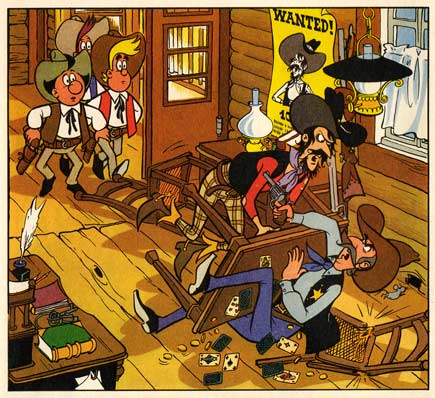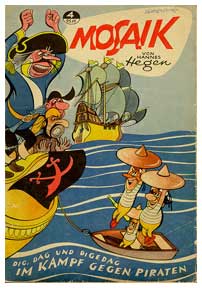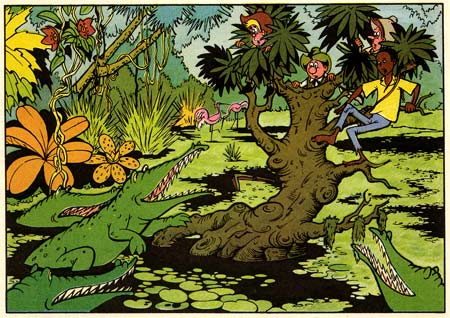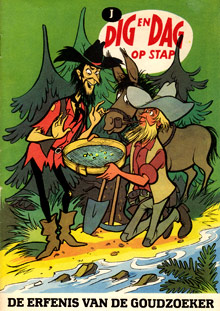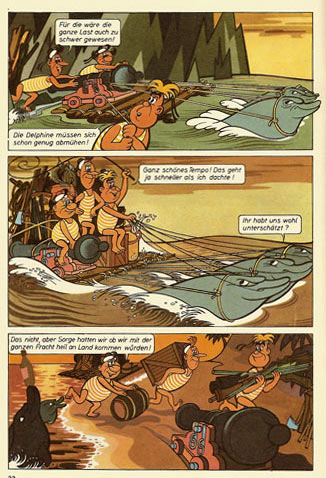Hannes Hegen earned a lot of fame in the former DDR with his comic 'Digedags' in Mosaik. Hegen studied art from 1943 to 1947 at the Hochschule für Angewandte Kunst in Vienna and from 1947 at the Hochschule für Grafik und Buchkunst in Leipzig, before he started working as an artist for several magazines in Berlin, including Frischer Wind. At the same time he sketched and developed a humorous comic series.
He presented his project to Bruno Peterson, publisher of the juvenile Neues Leben magazine, who was interested. Hegen's 'Digedags' were born, and the first issue of the accompanying magazine, Mosaik, appeared with Christmas 1955.
Mosaik was an immediate success, so the chiefs of Neues Leben suggested that Hegen should produce an issue every month. Mosaik turned from a quarterly to a monthly magazine in August 1957. Therefore, Hegen had to hire some assistants and start a studio.
Dutch editions of the Digedags comic
Amongst his co-workers were Lothar Dräger for scripts, and Horst Boche, Lona Rietschel and Irmtraut Winkler-Wittig for artwork. From 1955 to 1975, 223 issues of 'Mosaik' appeared, with the adventures of the characters Dig, Dag and Digedag. After a rupture with his publisher in 1975, Hannes Hegen withdrew from the series. Author Lothar Dräger continued it, introducing the new characters Abrax, Brabax and Califax. After the death of his wife, Edith Hegenbarth (who was part of his Mosaik collective from 1957), Hegen donated his entire archive with several thousands of original drawings to the Zeitgeschichtliche Forum museum in Leipzig. Hannes Hegenbarth passed away in Berlin on 8 November 2014.



